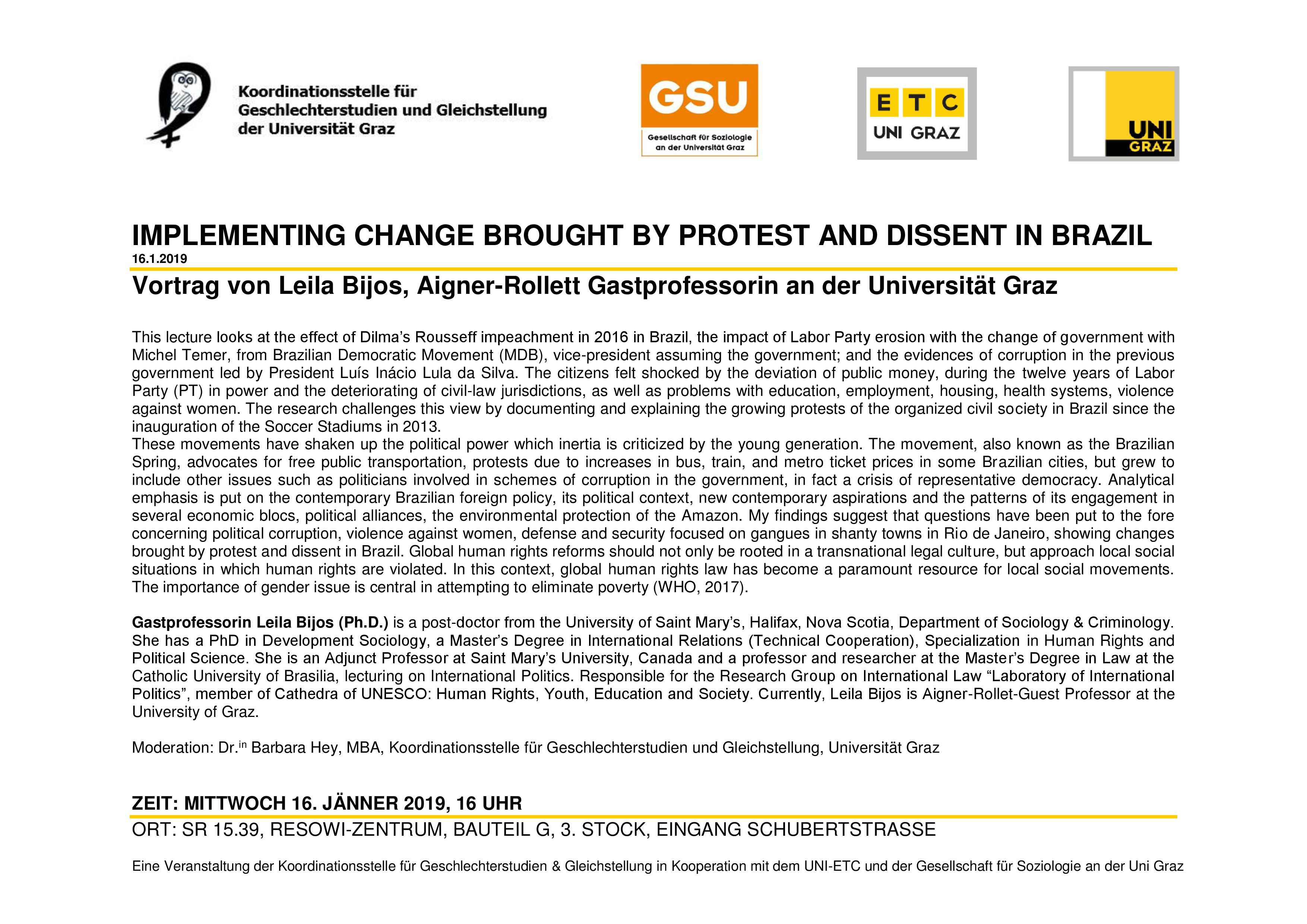This lecture looks at the effect of Dilma’s Rousseff impeachment in 2016 in Brazil, the impact of Labor Party erosion with the change of government with Michel Temer, from Brazilian Democratic Movement (MDB), vice-president assuming the government; and the evidences of corruption in the previous government led by President Luís Inácio Lula da Silva. The citizens felt shocked by the deviation of public money, during the twelve years of Labor Party (PT) in power and the deteriorating of civil-law jurisdictions, as well as problems with education, employment, housing, health systems, violence against women. The research challenges this view by documenting and explaining the growing protests of the organized civil society in Brazil since the inauguration of the Soccer Stadiums in 2013.
These movements have shaken up the political power which inertia is criticized by the young generation. The movement, also known as the Brazilian Spring, advocates for free public transportation, protests due to increases in bus, train, and metro ticket prices in some Brazilian cities, but grew to include other issues such as politicians involved in schemes of corruption in the government, in fact a crisis of representative democracy. Analytical emphasis is put on the contemporary Brazilian foreign policy, its political context, new contemporary aspirations and the patterns of its engagement in several economic blocs, political alliances, the environmental protection of the Amazon. My findings suggest that questions have been put to the fore concerning political corruption, violence against women, defense and security focused on gangues in shanty towns in Rio de Janeiro, showing changes brought by protest and dissent in Brazil. Global human rights reforms should not only be rooted in a transnational legal culture, but approach local social situations in which human rights are violated. In this context, global human rights law has become a paramount resource for local social movements. The importance of gender issue is central in attempting to eliminate poverty (WHO, 2017).
Gastprofessorin Leila Bijos (Ph.D.) is a post-doctor from the University of Saint Mary’s, Halifax, Nova Scotia, Department of Sociology & Criminology. She has a PhD in Development Sociology, a Master’s Degree in International Relations (Technical Cooperation), Specialization in Human Rights and Political Science. She is an Adjunct Professor at Saint Mary’s University, Canada and a professor and researcher at the Master’s Degree in Law at the Catholic University of Brasilia, lecturing on International Politics. Responsible for the Research Group on International Law “Laboratory of International Politics”, member of Cathedra of UNESCO: Human Rights, Youth, Education and Society. Currently, Leila Bijos is Aigner-Rollet-Guest Professor at the University of Graz.
Moderation: Dr.in Barbara Hey, MBA, Koordinationsstelle für Geschlechterstudien und Gleichstellung, Universität Graz
